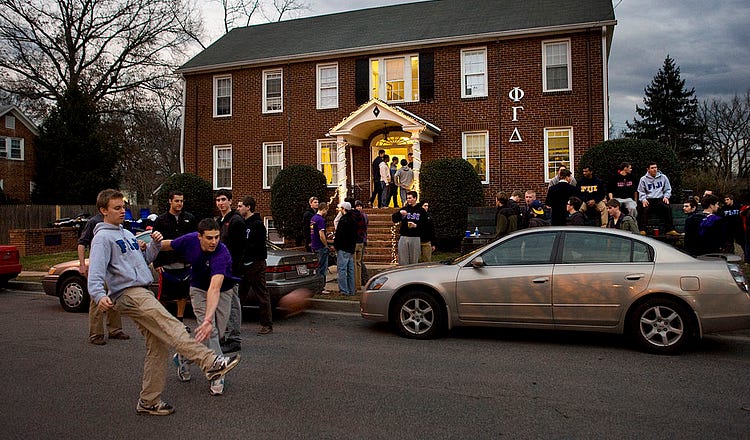One Rule for Frat Boys. Another for Violent Activists

University Of Maryland fraternity brothers attend rush in 2012. “We were guilty until proven innocent,” one brother told The Free Press of the college’s crackdown on Greek life. (Photo by Tracy A. Woodward/The Washington Post)
Greek students are targeted based on rumors. College protesters who break laws get off scot-free. Francesca Block reports on the double standard on the American campus.
213
The allegations were shocking. Fraternity brothers had been accused of beating new members with paddles, burning cigarettes into their skin, forcing them to lie on beds of nails, spitting on them, and commanding them to drink urine. University of Maryland administrators were alarmed by the claims, which appeared in their inboxes in late February, coming…
Continue Reading The Free Press
To support our journalism, and unlock all of our investigative stories and provocative commentary about the world as it actually is, subscribe below.
$8.33/month
Billed as $100 yearly
$10/month
Billed as $10 monthly
Already have an account?
Sign In

